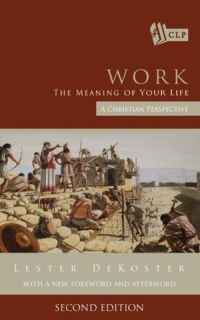 Dirty Jobs host Mike Rowe has made a career out of elevating down-and-dirty labor, constantly reminding us to never take for granted the hands of those who keep society moving. The show was recently cancelled, but Rowe continues to spread his message, most recently in the cover story of the latest issue of Guideposts magazine (HT).
Dirty Jobs host Mike Rowe has made a career out of elevating down-and-dirty labor, constantly reminding us to never take for granted the hands of those who keep society moving. The show was recently cancelled, but Rowe continues to spread his message, most recently in the cover story of the latest issue of Guideposts magazine (HT).
The article is a moving tribute to Rowe’s grandfather (“Pop”), who was skilled at a variety of trades, from electric work to plumbing to welding to carpentry. “He could do pretty much anything,” Rowe writes.
Rowe would tag along with his grandfather on various projects, watching him work and repair things with ease. “Pop was a magician, and his talents a great mystery,” Rowe writes. “As his would-be apprentice, I mimicked his every move.”
Yet without Pop’s “mechanical gene,” Rowe often felt inadequate and incapable. After one Saturday spent building a patio, he let his frustration show:
“I can’t do anything right,” I said ruefully.
“Sure you can, Mike.”
“Not like you, Pop. You could build a whole city if you wanted. I can’t even mix the cement.”
Pop thought for a moment before he spoke. “God gave me a toolbox, Mike. He gave you one too. But he didn’t give us the same one. You understand?”
Rowe proceeds to chronicle the tools he went on to discover, particularly a knack for the arts, the stage, and, eventually, TV broadcasting. It wasn’t until years later, however, when a plumber fixed his toilet, that Rowe connected his tools in the world of television with those his grandfather wielded years before:
When I got home that night, the mess was gone and the toilet was working just fine. It was as if the plumber hadn’t even been there. But something bothered me.
I thought of Pop and the day he’d fixed our plumbing all those years ago. I thought of all the hard work he did on our house, our church, and hundreds of homes and businesses in our community. I remembered how badly I had wanted to be a part of all that, and how I had yearned for the ability to do what he could do.
I didn’t even know the name of the plumber who fixed my toilet. How could I be so disconnected from the kind of tradesman I had once dreamed of becoming?
I considered a world without men like Pop. What would civilization look like without them? If a TV host calls in sick, life goes on. But if our tradesmen don’t report for work, things fall apart. Literally.
 In Work: The Meaning of Your Life, Lester DeKoster offers a strikingly similar reflection:
In Work: The Meaning of Your Life, Lester DeKoster offers a strikingly similar reflection:
Imagine that everyone quits working, right now! What happens? Civilized life quickly melts away. Food vanishes from the store shelves, gas pumps dry up, streets are no longer patrolled and fires burn themselves out. Communication and transportation services end and utilities go dead. Those who survive at all are soon huddled around campfires, sleeping in tents, and clothed in rags.
…Civilized living is so closely knit that when any pieces drop out the whole fabric begins to crumple. Let city sanitation workers go out this week, and by next week streets are smothered in garbage. Give homemaking mothers leave, and many of us suddenly go hungry and see our kids running wild. Civilization is so fragile that we either all hang together or, as Ben Franklin warned during the American Revolution, “we shall all hang separately.” …The mosaic of culture, like all mosaics, derives its beauty from the contribution of each tiny bit.
For Rowe, that simple realization — of the closely knit interdependence of all human work, of the beauty and significance of “each tiny bit” — would trigger a series of events leading to the creation of Dirty Jobs, a series designed to highlight the diversity of tools God has given each of us.
Civilization is indeed fragile, and as we hang together, may we not neglect the significance of work that serves another, from plumbing to banking, garbage collecting to TV-show hosting.

